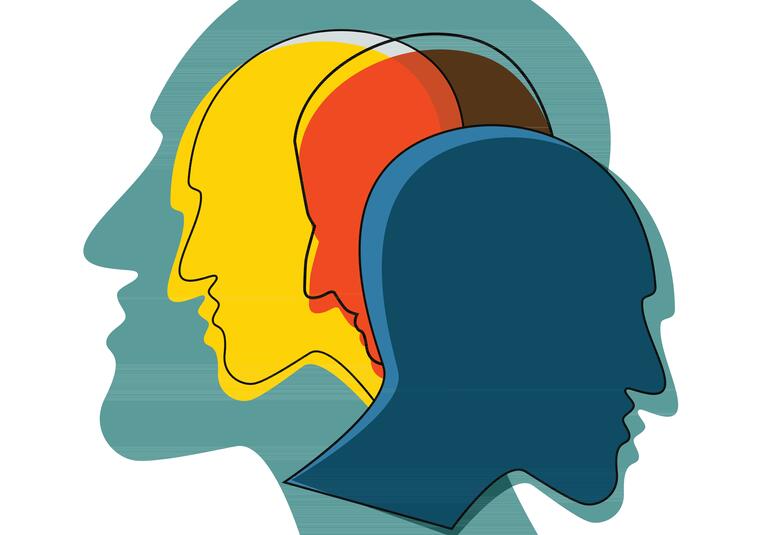Preventing the long-term consequences of schizophrenia, and particularly of multiple relapses, is the key treatment challenge for psychiatrists and patients in this condition. This symposium discussed the use of continuous therapy with long-acting injectable antipsychotics.
Prof István Bitten from Budapest, Hungary described the outcomes of continuous and intermittent treatment for schizophrenia. It has long been known that relapse rates are much worse for patients who discontinue their antipsychotic medication, than for those taking continuous treatment. Even if discontinuation after a first episode of psychosis is managed very carefully in selected patients, the outcomes in terms of relapses remain significantly worse than for patients who continued to take the medication.
These relapses have a negative effect on patients' well being and functioning. When patients relapse repeatedly, the duration of those relapses generally increases over time. After a few episodes, some patients may experience continuous psychosis, with little relief from their symptoms. In addition, after a relapse, a proportion of patients will develop treatment resistance to their original, effective treatment. Since many schizophrenia patients have multiple relapses, within any group of patients there is likely to be a growing number of them with difficult-to-treat and treatment-resistant disease.
Multiple relapses have negative effects on patients' well being and functioning
Schizophrenia is associated with a reduction of life expectancy. The risk of mortality, like that of relapse, is also higher in patients not receiving treatment than those taking antipsychotics.
This critical importance of relapse prevention also discussed by Prof. Henry Nasrallah, from St Louis, MO, USA. He described how the symptoms of schizophrenia have multiple adverse consequences, in terms of further deterioration in functioning, self-harm and suicide, homelessness and incarceration, a loss of self-esteem, and poor quality of life and social functioning.
He pointed out that non-adherence is a key cause of relapses, and that the disease process of schizophrenia impacts non-adherence. Patients who have diminished insight into their condition, cognitive impairment, negative symptoms such as avolition, paranoid beliefs about the origin of their side-effects and who may be misusing substances, may have difficulty in managing a daily oral drug regimen. So most patients stop taking oral antipsychotics very quickly after a first episode of psychosis. However, subsequent relapses associated with non-adherence, are detrimental to brain tissue.
Relapses are associated with neuroinflammation and oxidative stress, through a large increase of free-radicals in the brain. A first episode of psychosis destroys grey matter, and damages the connectivity and neuroplasticity of the brain. This loss increases further with each episode. Prof. Nasrallah spoke passionately about these damaging effects of the disease process, and argued that psychosis is just as dangerous for patients as cancer or heart disease. He believes that psychiatrists should be as determined to stop patients from having a second episode of psychosis as cardiologists are of preventing a second heart-attack in their patients. He argued that avoiding additional relapses after a first episode of psychosis is the best strategy to steer patients towards remission and recovery.
Treat psychotic episodes as seriously as a myocardial infarction, and take aggressive steps to prevent a second 'brain attack'
The question of how best to treat schizophrenia and to avoid relapses was elaborated by Prof Jose Olivares, from Vigo, Spain. He emphasised that the drugs we have for treating schizophrenia are highly effective – the numbers of patients needed to treat to reach meaningful outcomes are low – but these drugs also need to be used effectively to achieve the best possible outcomes. In order to improve long term functioning, both the type and timing of treatment need to be optimised.
Prof Olivares and the other speakers in this session all presented evidence for the improved efficacy of long-acting injectables, compared with oral antipsychotics. The speakers also advocated the early use of these long-acting therapies, because starting these treatments after only a short duration of symptoms has been demonstrated to improve patient outcomes, in terms of relapses and the course of the disease. Moreover, long-acting injectables have been shown to be neuroprotective against the neurotoxic effects of relapses in schizophrenia.
Early diagnosis and uninterrupted treatment with antipsychotics are key to improving long-term functioning
Early diagnosis and sustained, effective delivery of antipsychotic medications are decisive factors in patient outcomes in schizophrenia. A disorder in which the consequences of sub-optimal treatment failure are huge. With effective therapy, delivered continuously, long-term social functioning and patient autonomy are attainable for patients with schizophrenia.
This report is from a satellite symposium supported by Janssen Pharmaceutical Companies.
Our correspondent’s highlights from the symposium are meant as a fair representation of the scientific content presented. The views and opinions expressed on this page do not necessarily reflect those of Lundbeck.




